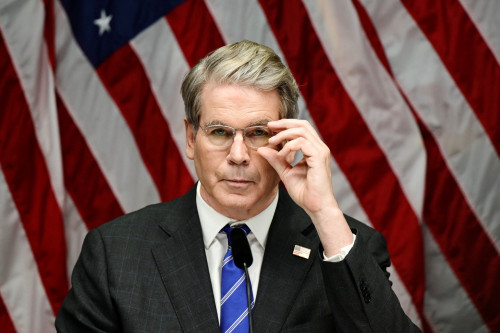By Steve Holland
DUBLIN (Reuters) -President Joe Biden said on Thursday that investigators were closing in on the source of the leak of highly classified U.S. intelligence documents, in what is believed to be the most serious security breach in a decade.
The Department of Justice opened a formal criminal probe last week after the matter was referred by the Pentagon, which is assessing the damage done by the release.
Some of the most sensitive leaked details are purportedly related to Ukraine’s military capabilities and shortcomings, and information about U.S. allies including Israel, South Korea and Turkey.
Reuters has reviewed more than 50 of the documents, labelled “Secret” and “Top Secret” but has not independently verified their authenticity. The number of documents leaked is likely to be over 100.
A number of countries have questioned the veracity of some of the documents, including Britain, which said there was “a serious level of inaccuracy” in the information.
Biden, on a three-day tour of Ireland, said he was not overly concerned about the leak.
“There’s a full blown investigation going on, as you know, with the intelligence community and the Justice Department, and they’re getting close but I don’t have an answer,” Biden told reporters.
“I’m not concerned about the leak, I’m concerned that it happened but there is nothing contemporaneous that I’m aware of.”
The FBI Washington field office is leading the investigation, according to a person familiar with the matter.
The person who leaked the documents is a gun enthusiast in his 20s who worked on a military base, the Washington Post reported on Wednesday, citing fellow members of an online chat group.
SOURCE OF LEAK
The Post based its report, which did not name the person, on interviews with two members of the Discord chat group.
Discord said in a statement on Wednesday that it was cooperating with law enforcement.
Reuters was unable to verify details of the report. Its broad outlines – that the documents were first shared on a Discord server for gun and ammo enthusiasts who often swapped offensive jokes – were initially reported by Bellingcat last week.
Reuters was unable to locate members of the now-defunct server, but a military weapons-focused YouTuber who goes by the name “Oxide” said he believed some members of the group may be people he expelled from his Discord server.
A Redditor who claimed to be in touch with a member of the server told Reuters that there had been a scramble to delete evidence when news of the leak came out.
Reuters could not immediately corroborate either person’s account, although both were consistent with other reporting published elsewhere.
Some national security experts and U.S. officials say they suspect that the leaker could be American, given the breadth of topics covered by the documents.
Since the leak first came to light in March, investigators have been pursuing theories ranging from someone simply sharing the documents to show off the work they were doing to a mole inside the U.S. intelligence community or military.
The leaks have already drawn responses from some foreign governments.
On Sunday, Israeli Prime Minister Benjamin Netanyahu’s office labelled as “mendacious and without any foundation whatsoever” a document asserting that the Mossad intelligence agency encouraged recent protests against him.
A South Korean presidential official said on Sunday the country was aware of reports about the leaked documents and planned to discuss “issues raised” with Washington.
One document, according to the BBC, discussed how U.N. Secretary-General Antonio Guterres is too willing to accommodate Russian interests
A U.N. spokesperson Stephane Dujarric criticized the leaks themselves.
“(Guterres is) not surprised by the fact that people are spying on him and listening in to his private conversations,” Dujarric said in a statement.
“What is surprising, is the malfeasance or incompetence that allows that such private conversations to be distorted and become public.”
(Reporting by Steve Holland. Additional reporting by Raphael Satter, Michelle Nichols, and Sarah N.Lynch.Writing by Idrees Ali; Editing by Kate Holton and Alistair Bell)





